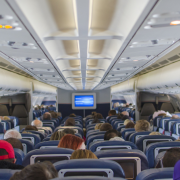The ECJ on confirmed bookings and reduced fares
In its ruling of 6 March 2025 (Case C-20/24), the European Court of Justice (ECJ) addressed two key questions regarding the interpretation of Regulation (EC) No 261/2004 (“Air Passenger Rights Regulation”).
First, the court considered whether a boarding pass that does not include departure and arrival times can still be regarded as a “confirmed booking” within the meaning of Article 2(g) of the Regulation. Second, the ECJ examined whether passengers traveling at a free or reduced fare are generally excluded from the scope of the Regulation.
The ECJ held that a boarding pass can constitute “other proof” within the meaning of Article 2(g) of the Air Passenger Rights Regulation, indicating that the booking has been accepted or registered by the airline or travel company. Therefore, a passenger holding such a boarding pass can, in principle, be considered to have a confirmed booking, unless the airline demonstrates that specific extraordinary circumstances justify a different conclusion.
Regarding the exception for passengers traveling for free or at a reduced fare, the ECJ ruled that this exemption does not apply if the passenger has paid the airfare to the travel company under market conditions. This also applies when the package travel price is paid to the travel company by a third party rather than by the passenger themselves. According to the ruling, it is up to the airline (in accordance with national rules of evidence) to prove that the passenger was indeed transported free of charge or at a reduced fare that was not directly or indirectly available to the public.
Don’t hesitate to contact our Aviation Team to learn more about confirmed bookings and reduced fares within the scope of the air passenger rights regulation and in general about passsenger claims in Austria.










